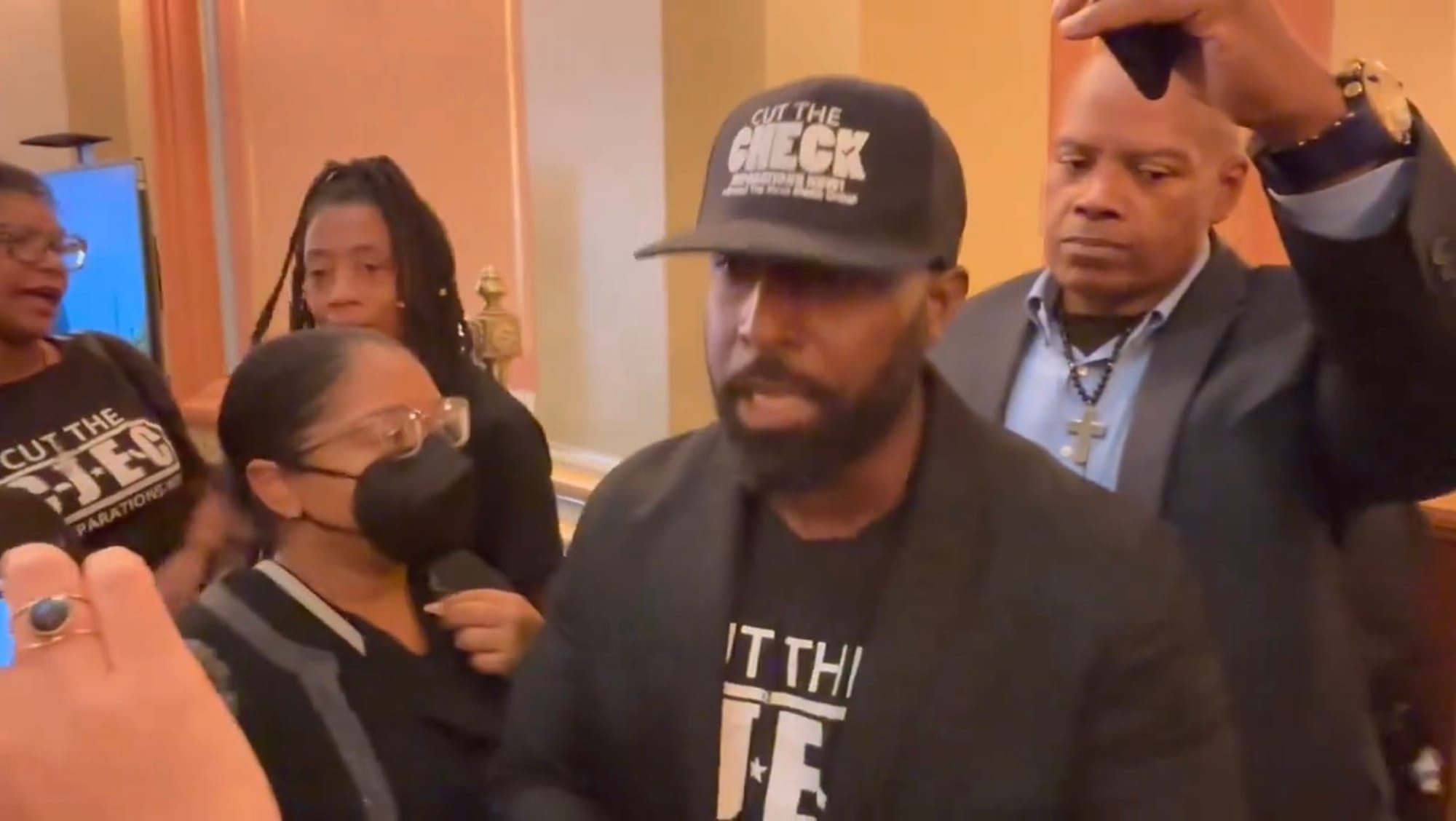Black Californians Warn Newsom of 'Direct Impact' on Harris's Campaign Over Reparations Bill Stalemate
In a dramatic turn of events at the California State Capitol, Black activists and members of the Coalition for a Just and Equitable California expressed their frustration and issued a stark warning to Governor Gavin Newsom regarding the potential repercussions for Vice President Kamala Harris's presidential campaign. This
In a dramatic turn of events at the California State Capitol, Black activists and members of the Coalition for a Just and Equitable California expressed their frustration and issued a stark warning to Governor Gavin Newsom regarding the potential repercussions for Vice President Kamala Harris's presidential campaign.
This came after Democratic legislators in California failed to advance two significant bills aimed at providing reparations for slavery, marking a significant setback in the state's efforts to address historical injustices against Black Americans.
WATCH: Black Californians, feeling frustrated, are cautioning Newsom that failing to sign the Reparations bills could "directly impact" his "friend, Kamala Harris, who is running for president." #california #kamalaharris #gavinnewsom #reparations pic.twitter.com/bbKZaNpVFO
— VIRTUE.NEWS (@virtuemediacorp) September 1, 2024
The legislative session concluded with the bills, which included proposals for land return or compensation for property unjustly seized and an official apology for discriminatory practices, not moving forward. This inaction has sparked outrage among activists who argue that these measures were crucial steps towards rectifying past wrongs. "They’re killing their own bills because they’re scared of the governor," one activist was heard saying in the rotunda, highlighting a perceived fear among legislators of confronting Newsom on this contentious issue.
The warning to Newsom was clear: the failure to pass these reparations bills could have a "direct impact" on Harris's presidential aspirations. This statement underscores the deep-seated frustration within the community, suggesting that political support could waver if the issue of reparations isn't addressed with the urgency they believe it deserves. "We need to send a message to the governor," another activist added, emphasizing the political stakes involved.
Despite the budget including up to $12 million for reparations-related efforts, which some see as a step forward, the lack of legislative action on these specific bills has been interpreted as a significant retreat. Democratic Assemblymember Reggie Jones-Sawyer, who introduced one of the bills, described his effort as "a labor of love," connecting his legislative push to his personal family history of racial injustice.
The situation in California reflects a broader national debate on reparations, with critics arguing that such measures are impractical or unfair to current generations who had no direct involvement in slavery. However, supporters, including many within the Black community, view reparations as a necessary acknowledgment and partial restitution for centuries of systemic racism and economic disadvantage.
This standoff in California not only highlights the ongoing struggle over reparations but also injects a new dynamic into the political landscape, potentially affecting national politics as Harris eyes the presidency. The activists' warning to Newsom serves as a reminder of the intricate balance politicians must navigate between historical justice, current political realities, and future electoral considerations. As the debate continues, all eyes are on how this might influence not just state politics but also the broader Democratic strategy in the upcoming presidential race.




